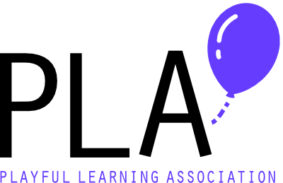Collective Creativity: A introduction to improvisation and how to use it
Corresponding Author: Jules Munns
All authors: Heather Urquhart
Length: 90 minutes
Location: Terrace Room
Description:
Much of the time, creativity is portrayed as a solo activity. We imagine Van Gogh, alone in his room, misunderstood by the world. He will change the face of art, but society at large is too stuck in its ways to appreciate it, and he dies alone. The genius myth makes good stories, but it teaches us terrible lessons. That creativity happens to some people and not others, that you either have it or you don’t.
Most human creativity doesn’t look like this. Most creativity is collective, accomplished by networks of passionate, connected people sharing, talking, and inspiring each other. Humans are social animals and work best when they work together. Creativity often happens between people as much as within them. Something that our education system all too often fails to tell students, or prepare them for. If all grades are given to the individual, that is how we see the world. A competitive, depressing, zero-sum game.
Using principles and practices taken from almost twenty years of performing improvised theatre across the world. Jules and Heather of Brighton company AndAlso Improv look to dispel the genius myth in a practical, embodied way. This is a join-in-from-the-start session with low pressure and maximum fun. Over ninety minutes of full participation, you will examine four principles:
1) Trusting yourself, your partner, and the process: The pressure to Get Things Done Now can be toxic. Creativity is a meandering, inefficient process. It cannot and will not be rushed. In improv, we look to be relaxed under pressure and trust what is happening.
2) Being obvious and building in small units: Often the desire to be imaginative and original can get in the way of those things happening. We want to make the big jump and have the world-changing idea. But it doesn’t work that way. In improv we learn to just get going, engage with what is happening step by step until what we need presents itself.
3) Not fearing failure: So much of our educational and professional lives, we are taught to pretend to be smarter and more informed than we really are. Not knowing is a sign that you aren’t smart enough, or haven’t done the homework. In improv, we examine failure not because we want to make bad shows, but to engage with reality honestly and see where we need to improve.
4) Accepting and building (or ‘Yes And’): The core principle of improvisation, which allows us to perform shows without preparation. How do we let go of our individual ego and build on what we are given? How does saying ‘Yes’ create an atmosphere of possibility and growth?
This session is open to those who are not performers or don’t see themselves as creative in any way. We share simple, applicable tools that can be used in any context where resources are incomplete and the outcome is not completely clear. Which is most of life. After all, life is improvised.
References, web links and other resources:
With our sister company, the Maydays, we would love to offer a show as part of the conference’s evening entertainment. Using anonymous audience stories, confessions (or maybe classroom nightmare stories), our team of award-winning improvisers can instantly create a show that is bespoke to the delegates at the conference. As well as being an opportunity to see the principles we have taught applied live, this would be a lovely way to create conversation and buzz.
themaydays.co.uk
